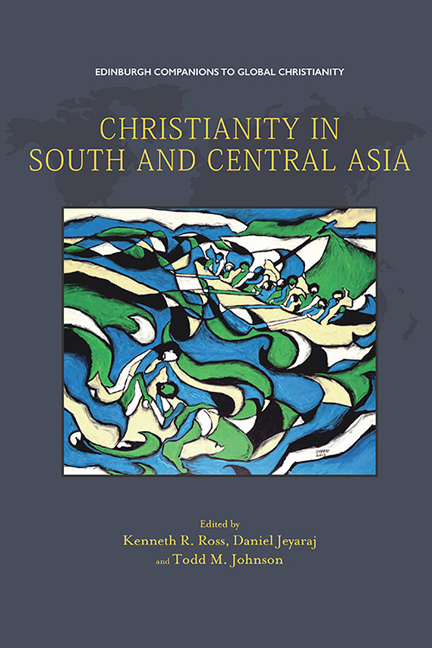Catholics
Published online by Cambridge University Press: 30 April 2020
Summary
Catholic Christianity of Central Asia
The very small Catholic communities of Central Asia drew world attention thanks to the visit of Pope John Paul II to Kazakhstan in 2001. Catholics constitute a tiny proportion of the population in most parts of the region, except in Kazakhstan, and even there they form only around 0.6%. However, the five states of Central Asia (Kazakhstan, Kyrgyzstan, Uzbekistan, Turkmenistan and Tajikistan) were once at the crossroads of civilisations – the Silk Road of Eurasia. From its early centuries onwards, Christianity spread in this region, which also served as a refuge for Christians of different traditions and persuasions (Nestorians, Jacobites, Melkites, Armenians) persecuted by the Byzantine, Persian and Ottoman Empires. In medieval times this region saw the missionary engagement of different Catholic orders such as Franciscans and Dominicans. The first diocese was established at Samarkand in 1329.
Russian Orthodoxy has been the dominant Christian tradition in the region, and has enjoyed state support even after the dissolution of the Soviet Union. The region witnessed also the presence of Catholics along with other Christian denominations, whose relationship with Orthodoxy has not been smooth. The end of Soviet rule created space for the establishment of organisational structures for pastoral work among the Catholic communities of Central Asia. Some Catholic religious orders, including the Missionaries of Charity (Mother Teresa's congregation), are doing pastoral and charitable work.
The region experienced a reduction in its Catholic population following the mass exodus to their ancestral homelands of Europeans earlier deported to Central Asia under Stalinist rule. However, Kazakhstan continues to have more Catholic churches and parishes than other Central Asian countries, especially in localities with minority German, Polish, Lithuanian or Ukrainian populations, descendants of the large mass of deportees. Today, there is even a seminary in Karaganda for the training of Catholic priests. Though the majority population is Muslim, Catholics, like other minorities in the country, enjoy freedom of worship and have established links with Rome and other parts of Asia. The Vatican even entered into a bilateral agreement on cooperation with Kazakhstan in 1998.
A very significant development took place when the Catholic Church in the region became part of the larger Asian Catholic structure – the Federation of Asian Bishops’ Conferences (FABC) – coinciding with the Asian Synod held in Rome in 1998.
- Type
- Chapter
- Information
- Christianity in South and Central Asia , pp. 211 - 222Publisher: Edinburgh University PressPrint publication year: 2019



